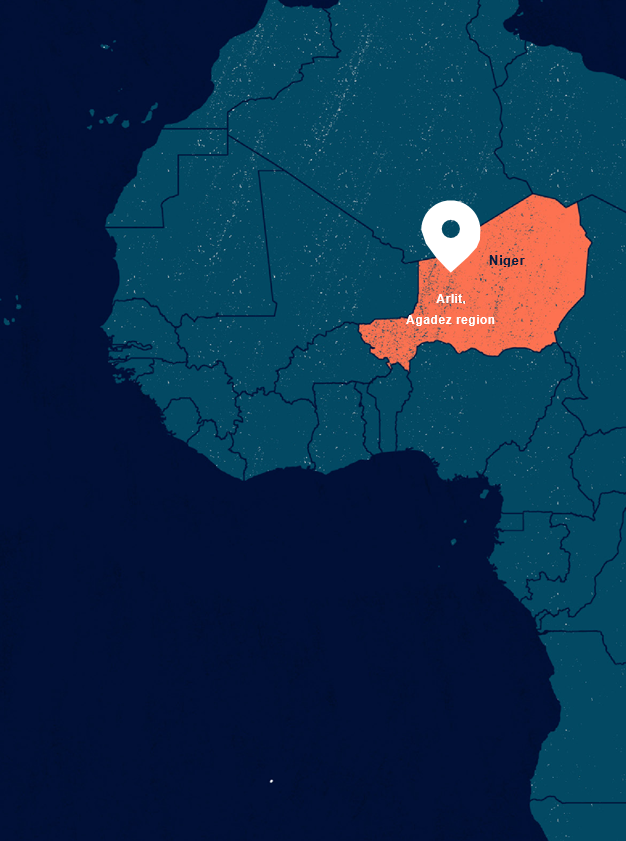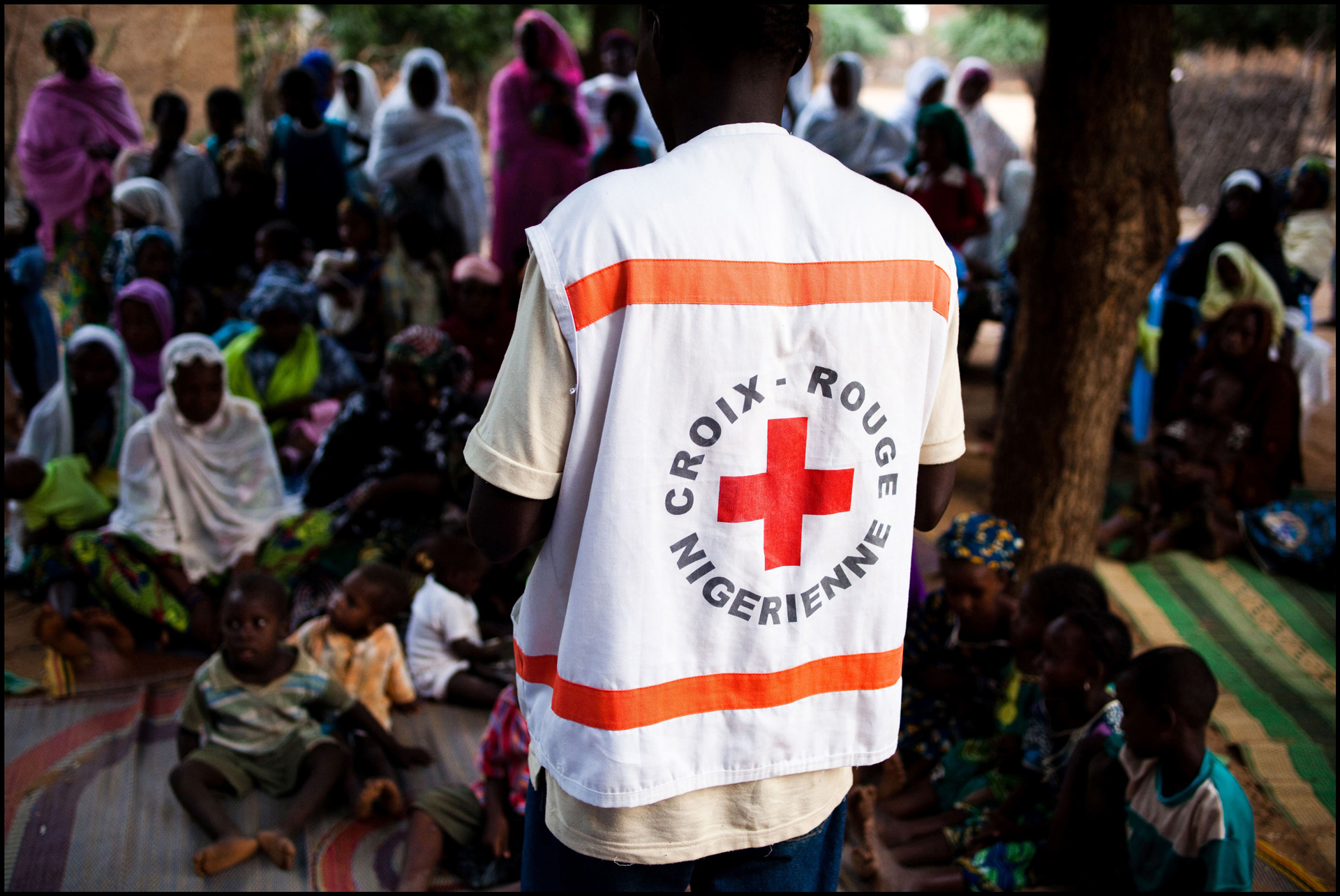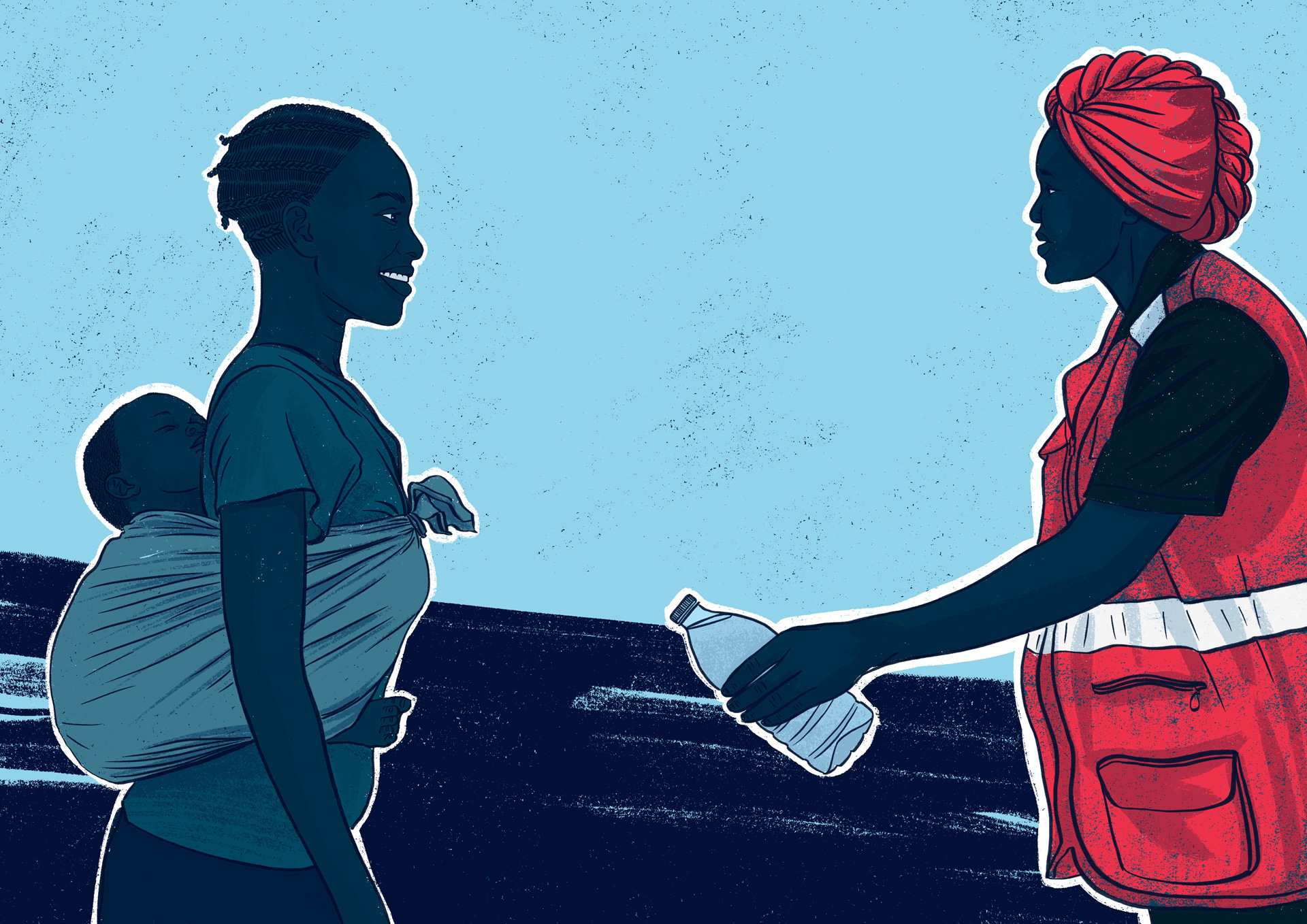HSP Case Study: Red Cross Society of Niger
Red Cross Society of Niger
Fixed and mobile Humanitarian Service Point
Arlit, Niger
2018
- Migrants and displaced persons
- Returned or deported Nigeriens
- Host communities
- Healthcare (including psychosocial support)
- Water, sanitation and hygiene (WASH)
- Safe referrals for survivors of human trafficking
- Restoring family links
Located in the southern belt of the Sahara and at the heart of trans-Saharan migration routes, Niger is host to varying forms of mobility, spanning voluntary and forced, regular and irregular migration. This includes internal and seasonal labour migration, mixed migration movements through Niger to Northern Africa and Europe, and voluntary and forced return movements. Niger is simultaneously a point of origin, transit and destination. In many cases, Niger is the last place where migrants and displaced persons interact with any humanitarian organizations before attempting to cross the Sahara into coastal countries. The cities of Agadez and Arlit, gateways to the Sahara Desert, have become a hub for migrants and displaced persons where they live in precarious conditions in highly overcrowded sites. As the northernmost town in Niger, Arlit has been a point of arrival for migrants and displaced persons forcibly removed from Algeria and those fleeing the crisis in Libya.
Migrants and displaced persons in West Africa have always faced vulnerabilities and barriers to accessing services. Critical vulnerabilities affecting different groups include challenges in terms of access to medical care and safe housing, irregular or precarious migratory status, insufficient or inaccessible information and assistance, increasingly restrictive migration policies in countries of transit and destination, and human rights violations and other protection risks (including the extortion of bribes, ‘gifts’ or other services). In Arlit, migrants and displaced persons have diverse and extensive humanitarian needs including physical and mental health, social care, food, non-food items (such as clothes, blankets and mosquito nets) and restoring family links.
In 2018, recognising the growing humanitarian needs, the Red Cross Society of Niger implemented a new healthcare project in Arlit, based on the model of a joint programme in Agadez in operation since 2013.
The authorities were involved from the start in the design of the new project, alongside representatives from migrant and displaced communities. An official partnership agreement was signed with Niger’s Health Ministry, which was also underpinned by more general and ongoing cooperation with authorities in Niger, including as part of the Red Cross Society of Niger’s auxiliary role to government authorities in the humanitarian field.
The new project in Arlit started by providing healthcare only. But the team realized health-related services were not enough to respond adequately to the diverse humanitarian needs of migrants and displaced persons. Over three years – and through regular needs assessments and feedback from migrants and displaced persons – the team gradually extended the project’s scope, until it developed into a fully-fledged HSP. Psychosocial support was added first, followed by distribution of non-food items and, more recently, introduction to life-saving techniques, restoring family links services and protection and assistance or survivors of human trafficking.
“Thanks to Humanitarian Service Points along migration routes, migrants are not left alone, abandoned. They always have somewhere to go when they are desperate.”
Staff member, Red Cross Society of Niger
The HSP is both fixed and mobile. Every day, migrants (including migrant sex workers), displaced persons, Nigerien returnees and deportees as well as the host population can access the healthcare centre, which is situated in a fixed location. A pick-up truck also brings services to people in ’ghettos’ and brothels. The truck is fully equipped to provide medical care, psychosocial support, WASH services, and to distribute non-food items such as hygiene kits.85 The HSP works in partnership with public health centres, where people are referred for acute and specialist medical care. Asylum seekers and refugees from Sudan and Chad, who were previously accommodated in a UN High Commissioner for Refugees refugee camp also occasionally use the Red Cross Society of Niger services.
Since the project operates on an annual basis, each year staff and volunteers receive new training on relevant issues. Regular training sessions include topics such as restoring family links, preventing sexual exploitation and abuse, community engagement and accountability, psychological first aid, protection and infection control and protection. For example, they undertake training on self-protection and infection control in response to the COVID-19 pandemic. The current project phase includes a strong capacity-strengthening element: The French Red Cross is training Red Cross Society of Niger and public healthcare staff in the WHO’s Mental Health Gap Action Programme approach for mental, neurological and substance use disorders in non-specialized health settings. Drivers and bus terminal managers also receive first aid training.
“I wasn’t sleeping until I came to see the Red Cross. I felt like I was a zombie, but now I am feeling much better, I sleep well, I smile and I am hopeful.”
Ivorian migrant in Niger
Annual stocktaking exercises suggest that communities and partners alike are very satisfied with the services and in particular with the respect and protection of dignity for the people accessing services.
Service users of medical and protection referral systems as well as restoring family links have also indicated appreciation for related community engagement and accountability activities. In contrast to other humanitarian actors in the area, who frequently deal with security incidents on their premises, there has never been a security incident in or around the HSP. The team believes this is due to the high level of acceptance of the Red Cross among migrants and displaced persons, host communities and local authorities. HSP staff shared their perception that most migrants and displaced persons recognize the Red Cross from their countries of origin, meaning they trust the emblem and feel reassured when accessing Red Cross services. The network of well-trained community-based volunteers also contributes to trust among service users.
Insights of the Red Cross Society of Niger
“The Humanitarian Service Point is a holistic model that provides the ‘full package of services’. It responds to all humanitarian needs as thoroughly as possible. It’s very positive!”
Red Cross Society of Niger staff member
The HSP team in Niger particularly appreciates the holistic nature of the model. They value the multifaceted response to humanitarian needs, both for com- munities’ and volunteers’ sake. When the project only provided healthcare, volunteers had often felt frustrated, noticing the myriad of other needs but not being able to provide for them. Thanks to the evolution of the project toward a fully-fledged HSP, volunteers can, for example, complement healthcare with protection for survivors of human trafficking, and psychosocial support. The team reflected on how, for volunteers working at the HSP, this appears to have led to a more rewarding experience.



